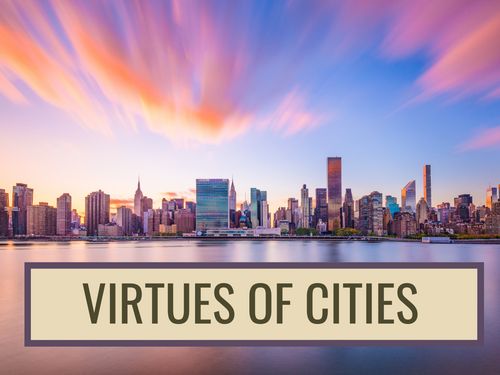Cities. They drain us of energy and are bad for the environment, right?
Jul 18, 2021 · 2 mins read
0
Share

The Triumph Of The City is a fantastic book. It's full of rich data and counter-intuitive insights. In this Memo, find out why cities are the original internet, why urban density will save the planet, and more👇👇👇
Save
Share
Cities attract smart people and make it easier for them to exchange ideas and work together. Because of this, cities have been "engines of innovation" for thousands of years, says Harvard economist Edward Glaeser.
Save
Share
"Urban density creates a constant flow of new information that comes from observing others’ successes and failures. In a big city, people can choose peers who share their interests, just as Monet and Cézanne found each other in 19th century Paris." - Glaeser.
Save
Share
In ancient Athens, Socrates taught Plato, who then taught Aristotle. Burnham and Wright, two architects, met in Chicago and invented the modern skyscraper. And the Florentine Renaissance happened as brilliant artists drew from each others' styles and discoveries.
Save
Share
Philosophy, art, and architecture would look very different without cities. Like the internet, they allow people to connect, share ideas, and amplify the social aspect of our species. This makes cities more productive.
Save
Share
"Cities make it easier to watch and listen and learn. Because the essential characteristic of humanity is our ability to learn from each other, cities make us more human." - Glaeser
Save
Share
If a city has 1 million+ people, they're 50% more productive than those living in cities with less than 1 million people. People in urban areas report being happier than people in rural areas.
Save
Share
Urban populations are fluid: "More than a quarter of Manhattan’s residents didn’t live there five years ago." This makes a place dynamic, but does raise concerns about where the residents' long-term loyalties are.
Save
Share
Contrary to popular understanding, concrete jungles are great for the environment. Why? Denser urban areas have an easier time warming up, cooling down, and moving around people. NYC, a super-dense place, has the lowest per capita energy consumption of any place in the US.
Save
Share
Bottom line: Cities are our greatest invention, says Edward Glaeser. They make all other inventions and innovations possible.
Save
Share
0